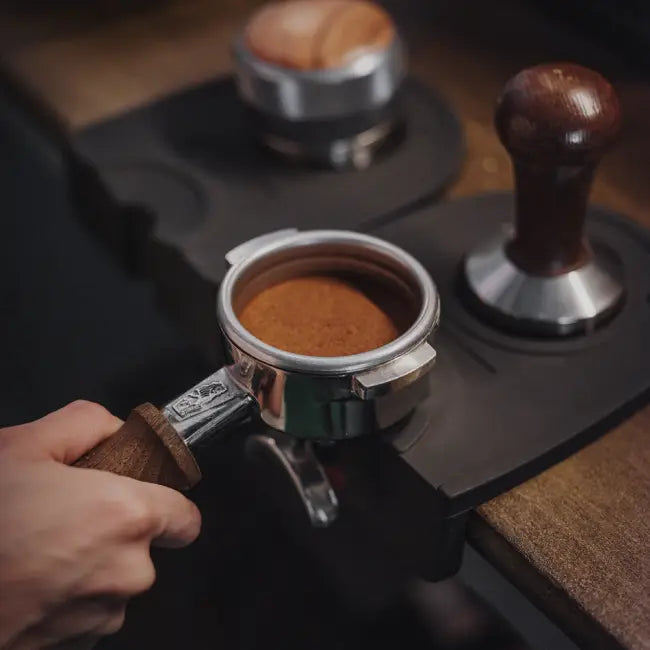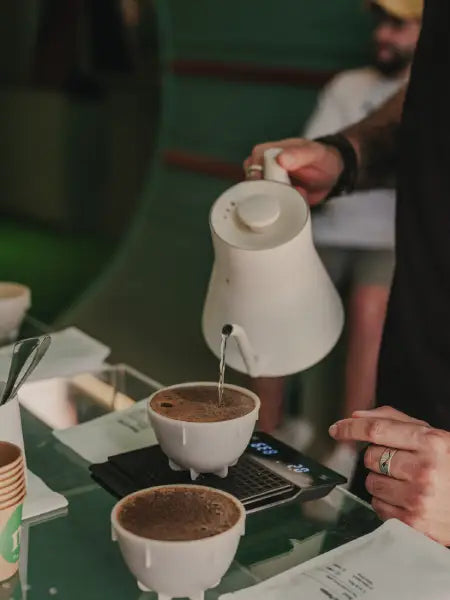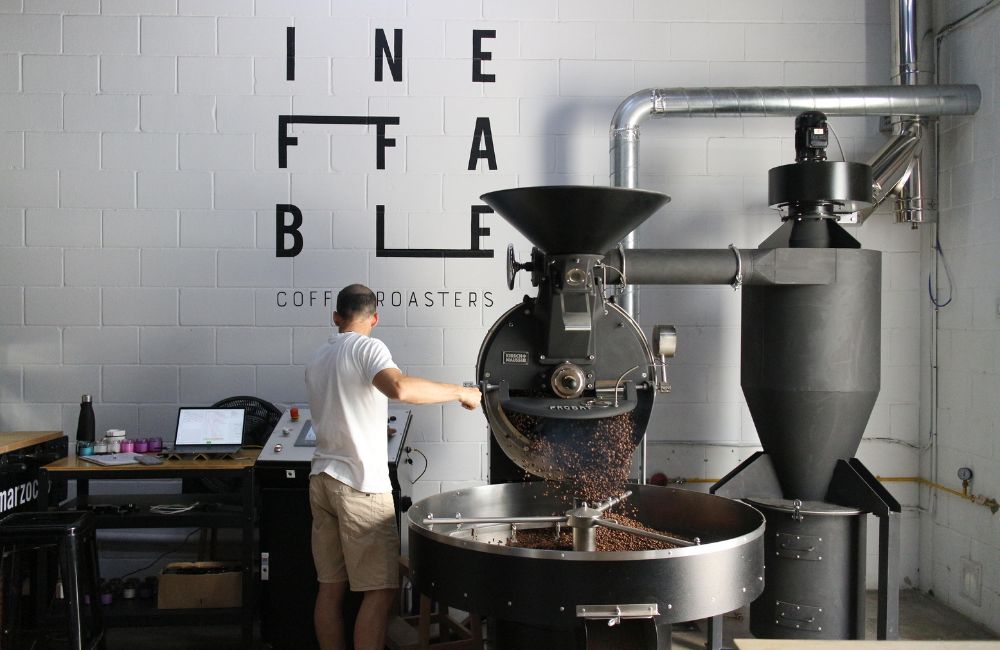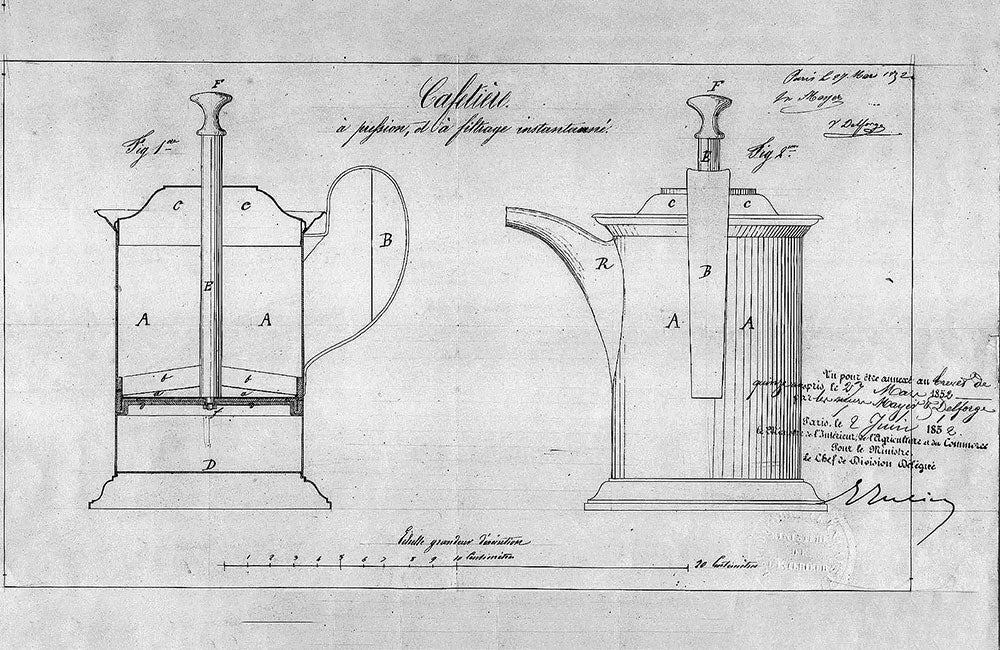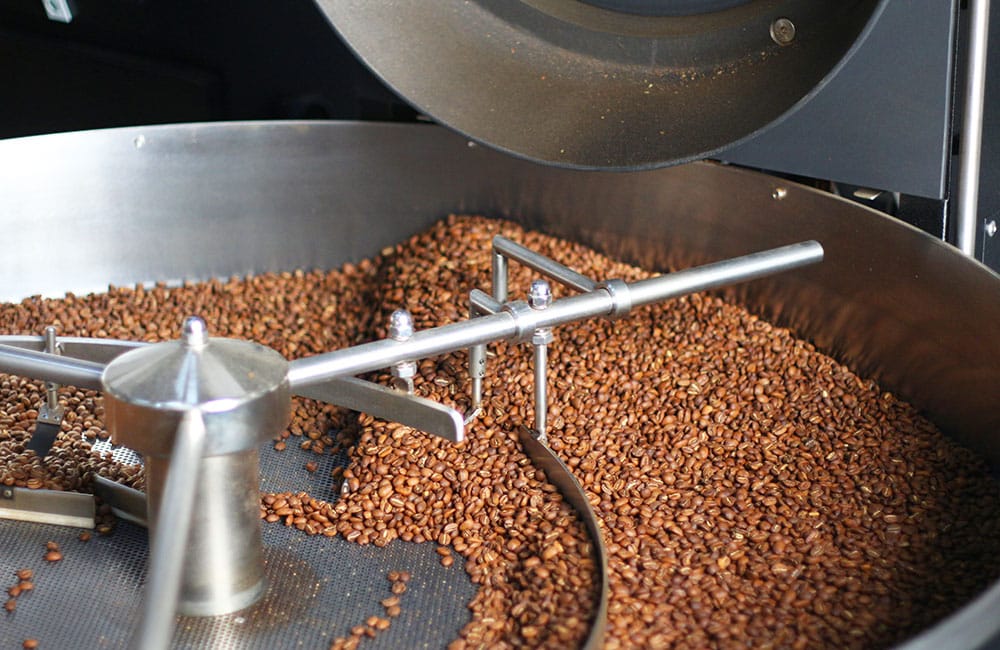Cafe de especialidad. No todos los cafés son iguales
Todos los cafés son iguales, pero algunos cafés son más iguales que otros. Hemos querido empezar parafraseando a George Orwell con esta frase extraída de su satírica novela ‘Rebelión en la granja’ porque nos va a ayudar a entender qué es el café de especialidad.
Todos los cafés son, eso, café. Es decir, el café es la bebida que se obtiene a partir de las semillas tostadas de los cafetos, la planta del café.
Pero la planta del café tiene unas 120 especies diferentes de las cuales se usan principalmente dos: el coffea arabica y coffea robusta. Y ni estas dos son iguales, ni las cientos de variedades de cada una de ellas lo son.
Factores como el clima, la altitud o el terreno influyen en el fruto y por tanto en la semilla. Además de esto, el proceso de recolección, tostado y preparado también son importantes en el producto final: la taza de café que preparas o que te preparan cada mañana.
Todos los cafés son café, pero no todos los cafés son iguales. Pero empecemos por el principio.
Erna Knutsen: una mujer especial y un café especial
 Erna Knutsen, creadora del término "café de especialidad”
Erna Knutsen, creadora del término "café de especialidad”
Erna Knutsen no fue una mujer conformista. Gracias a su amor por el café, sus excelentes aptitudes para catar y su buen ojo para los negocios consiguió introducirse en un mundo que, en los Estados Unidos de los setenta, estaba reservado solo para hombres.
Se inició en el mundo del café trabajando como secretaria -oficialmente, pero como asistente ejecutiva en realidad- de Bert Fulmer, quien era propietario de una antigua casa de café.
Durante su tiempo en esta empresa se dio cuenta de que había algunos lotes de café, llamados “lotes rotos”, que eran de menor cantidad y con sabores especiales que las grandes compañías no querían. Estos lotes, además, solían tener un solo origen.
Erna aprendió a catar -algo que no fue fácil puesto que solo los hombres podían hacerlo- y utilizó estas habilidades para dar salida a los “lotes rotos” en tostadores pequeños.
Creación del término café de especialidad
En 1973 Fulmer la nombró vicepresidenta y en 1974 Erna acuñó un término que desde entonces acompaña a todos los amantes del café. En un número de la revista Tea & Coffee Trade Journal, Erna utilizó el término “café de especialidad” para referirse a estos lotes rotos.
Cafés especiales, tanto por su cultivo como recolección y procesado, con sabores únicos y en lotes pequeños de un único origen. Además, para Erna, un café de especialidad no era solo eso, sino que implicaba relación y buen trato con los agricultores y cuidado del producto hasta destinatario final: el consumidor.
Desde entonces, el término “café de especialidad” ha pasado a formar parte de la cultura del café y a significar un café cuyas características no solo son excelentes, sino que se tiene en cuenta el mantenimiento de estas desde el productor hasta la taza.
El término café de especialidad también implica, desde sus inicios, un trato justo con los caficultores y un cultivo sostenible. Estas son dos piezas claves sin las cuales el café de especialidad no sería sostenible en el tiempo.
El café de especialidad requiere un cuidado y atención que un café comercial no necesita. Los caficultores deben recibir un pago justo por su trabajo, en muchas ocasiones sucede a través de trato directo con los tostadores, que les permita una vida digna. Y, dado que el cultivo de café de especialidad depende de diversos factores ambientales y de la riqueza del terreno (que veremos más abajo) para que se pueda mantener tiene que ser sostenible y respetar el ecosistema natural de donde crece.
Entonces, teniendo todos esto en cuenta, surge la pregunta: ¿a qué se refiere exactamente el término café de especialidad?
La definición técnica de la Specialty Coffee Association (SCA)

Preparación de cata de café de especialidad en Ineffable Coffee Roasters
La Specialty Coffee Asociation es una asociación sin animo de lucro basada en la membresía, que representa a miles de profesionales del café cuyo objetivo es fomentar las comunidades en torno al café y apoyar iniciativas que hagan del café una actividad más sostenible, equitativa y próspera en toda la cadena de valor.
Así es como se define la SCA y su labor implica marcar y mantener estándares de calidad en toda la cadena de producción.
Esta definición, además, nos ofrece un dato muy importante para entender qué es el café de especialidad: no es solo que el grano de café tenga unas características especiales, sino que todos los eslabones de esa cadena -desde el productor hasta el barista- aporten su grano de arena para sacar a relucir estas cualidades. Y, además, que todos se beneficien de forma equitativa.
En la actualidad, la SCA marca estándares para el café verde, el agua, las catas de café y el método de preparación. Estos estándares son recomendaciones cuantificables y calificables basados en comprobaciones científicas.
La SCA define el café de especialidad en su estadio verde como un café que no tiene defectos primarios, no tiene “quakers”, tiene un tamaño adecuado, ha sido secado de forma apropiada, se presenta en la taza libre de fallos y tiene cualidades organolépticas particulares.
En esencia, lo que esto significa, es que la SCA ha llevado a cabo experimentación apoyada en el método científico y en base a esta ha marcado estándares para deducir cuales son las cualidades y los elementos que hacen que un café sea considerado de especialidad.
Basados en estos estándares de han desarrollado diferentes métodos para cuantificarlos. Estos van desde la puntuación que puede recibir un café verde hasta las posibles notas que podemos percibir en la cata.
Puntuación de los cafés de especialidad
Uno de estos estándares, que refleja el proceso de cultivo, es la puntuación que obtiene un café verde. Esta puntuación en un indicativo de que tanto la variedad como el terreno o la altitud, y otros factores que afectan al café, tienen unas características específicas.
Y quizás sea una de las puntuaciones más representativas de un café de especialidad. Aunque no hemos de olvidar que un café de especialidad no es solo esta puntuación. Es también, y por encima de la puntuación, buenas prácticas en toda la cadena de producción, desde el caficultor hasta la taza, y una retribución digna.
La puntuación del café verde se basa en la inspección visual de los granos -una vez recogidos y procesados-, para determinar el porcentaje de granos defectuosos, y en la cata de estos una vez tostados.
En base a esto los catadores, quienes han recibido un minucioso entrenamiento previo, puntúan el café.
- Menos de 80 puntos: sin graduación. No se considera café de especialidad.
- Entre 80 y 84.99: muy bueno
- Entre 85 y 89.99: excelente
- Entre 90 y 100: excepcional
Por lo tanto vemos que, si bien sería fácil definir un café de especialidad como aquel que obtiene una puntuación mayor a 80 en la cata, este es solo uno de los factores -importante, sí, pero solo uno- que influyen en lo que significa un café de especialidad.
¿Qué entendemos hoy como café de especialidad?
 Cerezas de café de especialidad recién recolectadas
Cerezas de café de especialidad recién recolectadas
Desde que Erna Knutsen acuñara el término por primera vez hasta hoy, este ha evolucionado para significar un estándar de calidad medible y cuantificable en todos los eslabones de la cadena de producción de café y un trato justo a todos aquellos involucrados.
En un artículo de Ric Rhinehart para la Specialty Coffee Association of America (SCAA) en junio de 2009, actualizado y republicado en la web de la SCA en marzo de 2017, este propone dos términos que nos ayudan a entender el papel que juegan todos los implicados en la cadena de producción y elaboración del café: potencial y conservación.
Potencial es lo que cada grano de café esconde como promesa de una deliciosa experiencia gustativa.
Para que esto sea posible, todos aquellos involucrados en los procesos que tienen la capacidad de alterar las cualidades del café han de aplicarse para que esta mejore y no empeore. O, por lo menos, para que se mantenga su calidad.
El caficultor empieza eligiendo el terreno donde plantar, con una altitud y condiciones climáticas adecuadas. Elige la variedad para cultivar y le brinda los cuidados necesarios, sin el uso de químicos ni pesticidas. Luego se recogen los frutos solo cuando están maduros.
Tanto la fermentación y secado como el tostado y preparación, cada uno de estos pasos debe llevarse a cabo cuidadosamente para poder extraer el máximo potencial del grano de café.
El segundo término, conservación, tiene que ver con los actores que no están directamente involucrados en la manipulación del café -aunque a menudo sean los mismos- y que implica desde recogerlo en su momento adecuado, almacenarlo y transportarlo con cuidado de que esto no perjudique el café, hasta el empaquetado y la molienda.
Importancia de la cadena de valor
Como podemos apreciar, para que el potencial de un café y su conservación sean óptimos, todos los involucrados han de llevar a cabo su parte con atención y cuidado.
Si uno de los elementos falla, toda la cadena se viene abajo. De poco sirve que un café se haya cultivado en un terreno excelente y a una altitud adecuada si luego se fermenta y se seca mal, si se transporta de manera inadecuada, se tuesta de forma errónea o se prepara sin cuidado.
Por esta razón, para Erna Kuntsen el café de especialidad no era solo un término para definir un tipo de café, sino toda una cadena de valor desde el caficultor hasta el consumidor.
Y mantener una cadena implica que sus miembros se ayudan y apoyan unos a otros a través de un trato justo y equitativo para todos.
Para entender cómo afecta al café todo el proceso hemos de detenernos, brevemente, en aquello factores que hacen que un café sea verdaderamente especial.
Factores en origen que determinan un café de especialidad
 Camas elevadas para secar café de especialidad en Matyazo, Ruanda
Camas elevadas para secar café de especialidad en Matyazo, Ruanda
Los factores en los que los caficultores deben tener en cuenta para conseguir un café de especialidad son muchos, desde la variedad de la planta o el tipo de terreno hasta el clima o la altitud.
Y todos estos afectan al sabor final del café.
En cuanto a la variedad de la planta, los cafetos o plantas del café pertenecen a la familia de las rubiáceas.
De esta gran familia algunas son las privilegiadas: el género Coffea, que cuenta con más de cien especies pero que de las que nos interesan realmente dos: Coffea arabica y Coffea canephora (o robusta).
De estas dos el café de especialidad proviene casi exclusivamente del Coffea arabica, con algunas contadas excepciones de robusta de gran calidad.
Esto se debe a que la variedad del Coffea arabica es más aromática y delicada que el robusta y ofrece una experiencia más sofisticada al paladar.
Es importante mencionar que la variedad Coffea arabica cuenta con cientos de sub-variedades diferentes y cada una de ellas tiene características organolépticas específicas. Esto hace que los perfiles de cata puedan ser muy variados, aunque las semillas de café provengan de la misma especie.
Entre las muchas conocidas encontramos: Caturra, Típica, Bourbon, Geisha, Pacarama, SL28, SL34 o Mundo Novo.
Otros factores importantes
Otros factores importantes son el terreno y la altitud en la que se cultiva, el clima de la zona, la microbiología del terreno y la topografía. Esto factores no son meras curiosidades, sino que tiene un impacto sobre el producto final.
Por ejemplo, todos sabemos que un café de Brasil no tiene las mismas notas al paladar que un café de Kenia. Esto se debe tanto a la variedad de la planta cultivada como a todas las condiciones que hemos mencionado.
De forma general, una planta de Coffea arabica crece en altitudes elevadas -entre 600 y 2000 metros-, con un clima fresco -entre 15 y 24 grados- y con un promedio de lluvia anual de 1500-2000 mm. Las diferencias entre estas condiciones y cómo reaccionan las diferentes variedades a ellas es lo que nos da la gran y rica diversidad de cafés.
Además de estas condiciones generales, hay muchas otras específicas de cada región que también afectan. Una de ellas es la riqueza del terreno donde se cultiva, lo cual se reflejará en los frutos.
Otra puede ser el método usado para plantar los cafetos, si es una plantación única o si está entre otras plantaciones y vegetación. Esto último puede ser un factor importante ya que si los cafetos están a la sombra su maduración será más lenta y su concentración de azúcares mayor. En muchas ocasiones, el tipo de plantación dependerá de la región donde se cultiva.
Por supuesto, durante el cultivo tampoco se deben usar químicos ni pesticidas que puedan afectar a las cerezas de los cafetos.
Habiendo expuesto de forma breve como tanto las condiciones topográficas como climatológicas afectan al café podemos entender que el café es un producto de temporada. En la mayoría de los países que cultivan café la cosecha se recoge una vez al año (con la excepción de algunos países en lo que las condiciones permiten más de una cosecha) y la calidad de la cosecha depende de factores como el clima, la lluvia, y sobre todo de la mano experta de los recolectores y su posterior correcto procesado.
Procesado del café y otros factores
 Camas de secado de café de especialidad en Sao Silvestre, Brasil
Camas de secado de café de especialidad en Sao Silvestre, Brasil
Aparte de los factores que hemos descrito, sobre los que los caficultores no ejercen tanto control directo, hay otros sobre los que sí que tienen un control efectivo. Estos son el tipo de cuidados, cosechado, clasificación, procesado, almacenamiento y transporte.
En cuanto las prácticas de cultivo, todo lo que hace el caficultor, desde el uso de abonos o gestión de la sombra, hasta los patrones de siembra y el régimen de poda, afectará al resultado del cultivo.
Una práctica particularmente importante para la calidad del café es la recolección. Al igual que con otros cultivos, el café es mejor cuando se cosecha con una madurez óptima, pero, por supuesto, las cerezas de café no maduran a un ritmo uniforme.
Esto significa que, para obtener los mejores resultados, deben ser recogidas a mano por trabajadores capacitados. Lo que conlleva una mayor dedicación y carga de trabajo que repercute aumentado la calidad y, consecuentemente, su precio.
El café comercial, por oposición, generalmente se recolecta a máquina, con la consiguiente pérdida de calidad.
Tipos de procesado
Una vez que las cerezas de café se han recogido, idealmente en su punto óptimo de maduración, comienza el procesado.
Generalmente, después de la recolección se lleva a cabo una inspección para asegurarse de que todas las cerezas de café se encuentran en su punto óptimo y no tienen defectos. Las cerezas que no pasan el corte para un café de especialidad -o para buscar un perfil específico- se emplean para confeccionar otros lotes de menor calidad. Una vez pasada esta selección -y que se repetirá durante el secado- se procesan las cerezas.
En cuanto al procesado del café nos encontramos con tres formas principales: natural, lavado y “honey”.
- Proceso natural: consiste en dejar secar la cereza con el grano. Requiere de poca maquinaria y agua, pero de mucho trabajo y conocimientos para obtener un buen resultado. Una vez seco se trilla para separar los granos de la cáscara.
- Proceso lavado: se despulpan las cerezas mediante un proceso mecánico, separando la cereza de los granos. En este proceso el mucílago se remueve completamente en los tanques de fermentación y lavado. Posteriormente se deja secar hasta conseguir la humedad deseada
- Proceso “honey”: después de despulpar la cereza los granos se dejan secar con el mucílago, lo que le da al producto final características diferentes a los lavados y naturales.
La forma en la que se procesa un café afectará a su sabor final. Por ejemplo, los cafés lavados tienden a tener una mayor acidez, con notas limpias y frutales, que los naturales.
Por último, tanto la forma en la que se seleccionan las semillas de café una vez se han secado para descartar las que tienen fallos o la forma y temperatura de almacenamiento y transporte, son factores que pueden alterar ligeramente la composición química de la semilla y, por tanto, su sabor.
Por ejemplo, el secado de las bayas de una café de especialidad debe de ser uniforme, y para esto se requiere una supervisión constante. Y se debe de almacenar, una vez seco, en bolsas que lo protejan de la luz directa y temperaturas extremas.
Como hemos visto hasta ahora, un café de calidad requiere unas condiciones y trato especiales. Para que los caficultores puedan dedicarse a esto es necesario que la cadena completa de producción y venta los tenga en cuenta y reciban un pago justo por su trabajo.
El impacto del café de especialidad en los países de origen
 Caficultor de la finca Sao Silvestre, Brasil
Caficultor de la finca Sao Silvestre, Brasil
El café es una mercancía que se vende en los mercados de futuros y cuyo valor total de la industria, de acuerdo con la OEC, era de treinta mil millones de dólares en 2018.
No es la segunda mercancía más vendida (como a veces se afirma), ni siquiera el primer producto agrícola más vendido, que sería la avena, pero sí está en la lista de las mercancías más vendidas con un impacto económico que en algunos países llega al 7% del PIB.
El hecho de que el café se venda en los mercados de futuros abre la puerta a todo tipo de especulación y el consiguiente perjuicio para lo caficultores. Por esta razón, el café de especialidad está basado en el trato directo.
Los importadores de café verde de especialidad tratan directamente con la granjas o cooperativas de caficultores para comprarles a ellos directamente la producción.
La facilidad de comunicación y transporte actuales también ha hecho que muchos tostadores puedan comprar directamente a los caficultores. En Ineffable Coffee tenemos lotes que hemos adquirido de esta forma.
Esto asegura que los caficultores reciban un precio justo, puesto que se reduce el número de intermediarios.
Además, quienes compran el café lo aprecian y entienden que un café de calidad requiere de atención y cuidado especiales y esto solo es posible cuando se paga un precio que permite a quienes lo cultivan una vida digna.
Impacto del café de especialidad versus el café comercial
Para entender la diferencia entre el impacto del café de especialidad sobre los países productores y los caficultores versus el café comercial, podemos hacer una comparación con comprar verduras en una gran superficie o en una cooperativa de agricultores.
En la primera, son las grandes superficies las que tienen el monopolio y marcan los precios, a menudo con un gran número de intermediarios, lo que hace que el agricultor apenas reciba una recompensa justa por su trabajo.
Mientras que, si compramos en una cooperativa, estamos pagando el precio casi completo al agricultor, lo que le permitirá tener una vida más digna y realizar mejor su trabajo.
Por esta razón, promover el café de especialidad no es solo una cuestión de gustos, sino que también tiene un razonamiento ético.
El hecho de que se reduzca el número de intermediarios hace que cada uno de ellos -los que son necesarios- jueguen un papel muy importante.
La cadena de producción del café de especialidad, de forma simplificada, es la siguiente: caficultor – cooperativa/importador – tostador – cafetería – consumidor.
En esta cadena, el tostador juega un papel muy importante como punto de unión entre el origen -el caficultor- y el destinatario final -el consumidor-.
El impacto de un café de especialidad sobre el ecosistema
El café de especialidad, como hemos ido esbozando, no es solo un café delicioso, sino también un café ético. Se tiene en cuenta a todas las personas involucradas en la cadena de producción y se procura que reciban un pago justo que les permita una vida diga.
Además de esto, el café de especialidad es -y debe ser- sostenible y respetuoso con el medio ambiente.
Debe serlo puesto que, si no lo es, el delicado ecosistema que se necesita para su cultivo desaparecería. Y lo es porque todas las prácticas de cultivo, que no son superficies de monocultivo, que se utilizan los recursos naturales del lugar o que no se utilizan químicos, entre otros, favorecen esto.
Los caficultores de café de especialidad suelen tener pequeñas granjas perfectamente integradas en el ecosistema de su entorno. Trabajan para que su forma de cultivo respete y ayude al ecosistema, puesto que también ellos necesitan de este.
Por eso decimos que un café de especialidad es un café delicioso, pero también ético y sostenible.
La labor de un tostador de café de especialidad

Tueste de café en Ineffable Coffee Roasters
El tostador de café de especialidad juega un papel muy importante en la cadena de producción del café. Es el punto de unión entre los importadores o cooperativas que tratan con el producto en origen y las cafeterías que tratan con el destinatario final.
Su labor principal es seleccionar cafés de entre las variedades que ofrecen los importadores/cooperativas y tostar cada uno de ellos de manera precisa para extraer lo mejor de cada café.
Como decíamos antes, el trabajo del tostador es potenciar la materia prima que le llega a través del tueste.
Diferentes cafés, diferentes tuestes
Los tuestes son diferentes dependiendo de las características del café, como altura o variedad, y del procesado que hayan tenido. Factores como el tiempo de tostado o temperatura afectarán al producto final.
Por ejemplo, un café con un tueste ligero tendrá más acidez y notas más afrutadas que uno con un tueste medio. Pero será el tipo de café, densidad, humedad, etc. y cada tostador el que dictaminará que tueste dar a un café.
Cada son vez más los tostadores que se lanzan a la venta directa de café de especialidad online -y esto puede suponer una ventaja para el consumidor- pero no significa que las cafeterías de especialidad dejen de ser importantes.
Tomar café ha sido durante siglos, y seguirá siendo, una actividad social y las cafeterías de especialidad tienen un papel imprescindible en esta cadena. Son, además, lugares donde se le muestra al cliente final el valor de toda la cadena de producción.
La cafetería de especialidad y el barista
 Las cafeterías de especialidad son una parte muy importante del proceso
Las cafeterías de especialidad son una parte muy importante del proceso
Si tuviésemos que definir los tres roles que directamente más impactan la calidad del café, el primero sería el del caficultor, el segundo el del tostador y el tercero el de la cafetería de especialidad y barista.
El rol del caficultor y del tostador ya los hemos explicado brevemente. Nos queda por explicar el de la cafetería de especialidad y el barista.
Las cafeterías de especialidad son el lugar donde termina el viaje de la semilla del café y donde culmina la experiencia cafetera. Para hacer justicia a la cadena de valor anterior es muy importante que el barista -la persona encargada de preparar el café- tenga un amplio conocimiento sobre café y sobre métodos de preparación y que mantenga estos constantemente actualizados.
Equípate con nuestros complementos, visita nuestra tienda
Conocimientos que ha de tener el barista
Cada caficultor trabajará para sacar el máximo partido a sus plantas y conseguir un café de calidad.
El tostador tostará este café intentando respetar el perfil de cata. Cada café tiene un punto de tueste en el que cuenta la mejor versión de sí mismo; ese punto, donde resalta el gran trabajo del agricultor, las cualidades únicas de la tierra y las condiciones en las que crece.
El barista, a su vez, tendrá que conocer tanto la variedad de café como el tueste para elaborar una receta que extraiga el máximo potencial del café.
Para esto es importante que conozca todos lo métodos de preparación: la máquina de espresso, los métodos de filtro, infusión, etc. Además, debe de saber cómo afectan los diferentes parámetros, como el tamaño de la molienda, la temperatura del agua, la ratio de agua/café etc. al producto final (puedes consultar nuestras guías de preparación de café)
Y, por último, debe saber como transmitir todo esto al cliente de forma que este lo pueda llegar a apreciar tanto como él y sea consciente del esfuerzo y trabajo que todos los involucrados han puesto para que pueda disfrutar de esa taza de café.
El rol social del café y las cafeterías de especialidad
 Cafetería de especialidad Rebel Café en Madrid
Cafetería de especialidad Rebel Café en Madrid
Tradicionalmente, en países como Kenia o México, el café ha sido siempre un ritual social con la intención de estrechar las relaciones humanas. En la sociedad globalizada y urbanizada de hoy día, las cafeterías pueden cumplir este papel.
Un entorno agradable, con un buen servicio y un gran café pueden ser los ingredientes perfectos para que, los clientes pasen de considerar una cafetería como un sitio donde meramente van a tomar su dosis de cafeína a un sitio donde se sientan cómodos e inspirados.
La comunidad del café de especialidad en España cada vez crece más. Cada día son más los tostadores, cafeterías y personas que quieren disfrutar de la exquisita experiencia gustativa y social que ofrece el café de especialidad. Entienden, además, que nuestros hábitos de consumo tienen un gran impacto sobre nuestro planeta y las personas que vivimos en él e intentan apoyar aquellos proyectos que tienen esto en cuenta.
Nosotros, como tostadores de café de especialidad en Sevilla, somos y queremos seguir siendo, parte de esta bonita comunidad construida alrededor del café.
¿Y tú, te apuntas?

